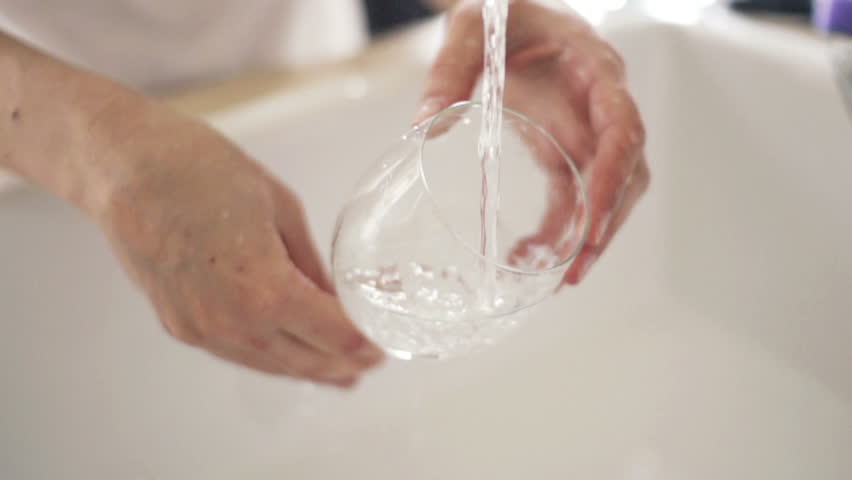Wine glasses are an essential part of any wine enthusiast’s collection, and keeping them clean is crucial for enjoying the full flavor and aroma of your wine. This comprehensive guide will walk you through the best practices for cleaning wine glasses, including hand washing, using a dishwasher, and caring for polishing cloths.
Cleaning wine glasses might seem straightforward, but achieving a perfect, streak-free shine requires attention to detail and proper technique. This guide will provide you with all the necessary steps and tips to ensure your wine glasses remain in pristine condition, enhancing your wine-drinking experience.
The Importance of Clean Wine Glasses

Clean wine glasses are crucial for several reasons:
- Taste and Aroma: Residue and stains can affect the taste and aroma of the wine.
- Aesthetic Appeal: Spotless glasses enhance the visual enjoyment of wine.
- Durability: Proper cleaning techniques can prolong the lifespan of your glasses.
- Hygiene: Ensures the removal of bacteria and other contaminants.
Hand Washing Wine Glasses

Hand washing is often considered the best method for cleaning wine glasses, especially for delicate crystal stemware.
Step-by-Step Guide
- Rinse Under Warm Water: Begin by rinsing the glass under warm water. Avoid using hot water as it can cause the glass to crack.
- Use Specialized Cleaners: If necessary, use a specialized stemware cleaner like Crystal Care 2000 liquid to remove lipstick and sediment stains. For difficult stains, haziness, or cloudiness, use Crystal Clear powder.
- Drain and Steam: Place the glass on a linen or stemware drying mat to briefly drain. For extra shine, steam the glass over boiling water.
- Dry and Polish: Use a microfiber polishing cloth to dry and polish your glasses. Hold the glass by the base and polish the base with the cloth. Cradle the bowl with your left hand and polish with your right hand, keeping a polishing cloth between your fingers and the glass to avoid prints.
- Avoid Twisting: NEVER twist the base and bowl, as this can cause the stem to snap off.
Common Mistakes to Avoid
- Using Dish Soap: Regular dish soap can leave residues that affect the wine’s taste.
- Hot Water: Hot water can cause thermal shock, leading to cracks.
- Rough Towels: Avoid using rough towels that can scratch the glass.
Using a Dishwasher

While hand washing is preferred for delicate crystal, some wine glasses are dishwasher safe. Follow these guidelines for optimal results.
Preparation
- Check Manufacturer’s Instructions: Ensure your glasses are labeled as dishwasher safe.
- Remove Debris: Rinse the glasses to remove any large debris.
Loading the Dishwasher
- Separate Glasses and Metal Objects: Keep glasses away from each other and metal objects to avoid contact and scratching.
- Use Stemware Racks: If available, use the stemware rack to secure the glasses.
- Water Hardness: If your area has hard water, add white vinegar to the rinse cycle to prevent water stains.
Post-Dishwasher Care
- Inspect for Residue: Check for any remaining residue or water spots.
- Polish: Use a microfiber cloth to give the glasses an additional polish if necessary.
Caring for Polishing Cloths
 Maintaining your microfiber polishing cloths is crucial for ensuring your wine glasses remain spotless.
Maintaining your microfiber polishing cloths is crucial for ensuring your wine glasses remain spotless.
- Wash at High Temperature: Wash the cloths at a boiling temperature (minimum 170°F) to remove bacteria.
- Use Odorless Soap: Use odorless soap to prevent transferring scents to the glasses.
- Avoid Fabric Softener: Never use fabric softener as it can leave a greasy film on the glasses.
Advanced Tips for Maintaining Crystal Clarity
- Avoid Storage in Kitchen Cabinets: Strong aromas from food and other items can be absorbed by the glass.
- Regular Inspections: Regularly inspect your glasses for any signs of wear or damage.
- Use of Distilled Water: For a final rinse, use distilled water to prevent mineral deposits.
Conclusion
Keeping your wine glasses clean and clear enhances your wine-drinking experience and ensures the longevity of your glassware. Whether you choose to hand wash or use a dishwasher, following the proper techniques and avoiding common mistakes is crucial.
I’m Chen Mina, from Vol de Nuit, who has a special passion for bartending, especially mixing wine, beer, and cooktail. Here you will find content about alcoholic beverages, I will bring you knowledge that few people know about this drink.





